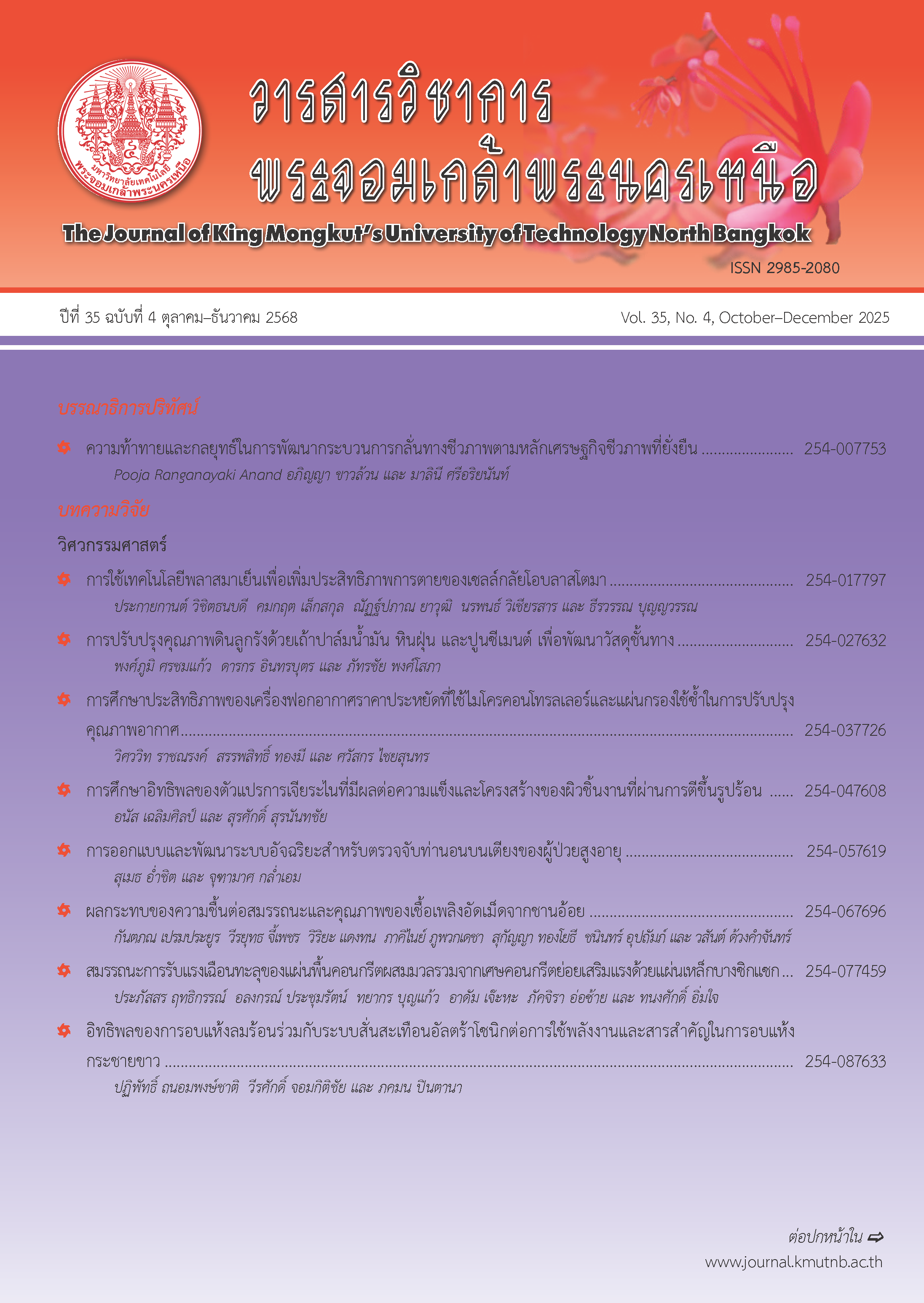Potential Model Development for Heads of the Customs House’s Effective Management in the Digital Era
Main Article Content
Abstract
In an era of rapid and sudden global societal changes, known as the VUCA World (Volatility, Uncertainty, Complexity, and Ambiguity), organizations face challenges in adapting to the digital age, advanced technology, and modern innovations. This affects how Customs House Chiefs must adapt to keep pace with these changes. Therefore, it was necessary to conduct research to develop a model for Customs House Chiefs' competencies in the digital era. Using the Delphi technique, interviews were conducted with 21 customs experts. The research findings showed that most aspects, both in terms of Chiefs' competencies and management processes, had importance levels (Mdn) ranging from 4.00–5.00, indicating high to highest importance, and consensus levels (IQR) of 0.0–1.0, showing high to very high consensus. The results were used to categorize components and develop a competency model for Customs House Chiefs, which comprises 3 dimensions, 4 main components, and 20 sub-components, with each main component containing 5 sub- components as follows: 1) Knowledge competencies: Cyber & Innovative Knowledge, Customs & Law Knowledge, Corporate Management, Constitutional Policy, and Cross-border Relations; 2) Skills competencies: Critical Thinking Skills, Communication & Coordination Skills, Coaching Leadership Skills, and Cyber Technology Skills.; 3) Desirable attributes: leadership qualities, Chief Leader Character, Code of Ethics and Conduct, Continuous Learning & Development, Creative Thinking, and Collaborative Teamwork & Connection Dimension; and 4) Management processes: Corporate Management in the Digital Era, Capital, Budget & Technology Resource Management, Command & Leadership, Crisis & Risk management, and Control & Evaluation. The development guidebook consists of 3 learning categories: TRUST, TEAM, and TECH+, comprising a total of 11 guidelines that emphasize development in technology and innovation for organizational management in the digital era.
Article Details

This work is licensed under a Creative Commons Attribution-NonCommercial-NoDerivatives 4.0 International License.
The articles published are the opinion of the author only. The author is responsible for any legal consequences. That may arise from that article.
References
Office of the National Economic and Social Development Council. National Strategy 2018– 2037, Bangkok, Thailand: Office of the National Economic and Social Development Council, 2018 (in Thai).
Digital Government Development Agency, Thailand Digital Government Development Plan 2023–2027, Bangkok, Thailand: Digital Government Development Agency, 2023 (in Thai).
Customs Department, Customs Procedure Manual Chapter 9, Bangkok, Thailand: Customs Department, 2017 (in Thai).
Royal Thai Government Gazette, Ministerial Regulation on the Organization of the Customs Department, Ministry of Finance B.E. 2562. Vol. 136, Sec. 57 A. Bangkok, Thailand: The Secretariat of the Cabinet, 2019 (in Thai).
Information and Communication Technology Center, Customs Department, 5-Year Digital Action Plan (2023–2027), Bangkok, Thailand: Customs Department, 2021 (in Thai).
Department of Primary Industries and Mines, Logistics Standardization, Bangkok, Thailand: 2017 (in Thai).
Office of Customs Affairs, Royal Thai Embassy to Belgium, “Brazilian customs' AI and Its learning capabilities in import-export declaration screening,” Journal of Customs Policy Monitoring Unit, vol. 5, no. 12, Dec. 2020 (in Thai).
T. C. (2024, Sep. 5). From VUCA world to BANI world: A world of uncertainty. Bangkok Business News. [Online] Thailand. Available: https://www.bangkokbiznews.com
C. Jensen, Delphi in Depth: Power Techniques from the Experts Berkeley. Berkeley, CA, USA: McGraw-Hill, 1996.
D. C. McClelland, Testing for competence rather than intelligence. (1973). American Psychologist. [Online]. Available: www. ei.Haygroup.com
H. Fayol, “Administration industrielle et generale,” Bulletin de la Societe del' Industrie Minerale, fifth series. vol. 10, no. 3, pp. 5–162, 1916.
W. Katesing, Research Manual: Action Research. 1st ed. Bangkok, Thailand: Digital Textbook and Printing Production Center, King Mongkut's University of Technology North Bangkok, 2022 (in Thai).
P. Chaiyapong, “Trends in provincial secondary education office administration in the next decade,” M.Ed. thesis, Prince of Songkla University, 1993 (in Thai).
B. Srisa-ard, Statistical Methods for Research, vol. 1, 2nd ed. Bangkok, Thailand: Suviriyasarn, 1998 (in Thai).
S. Buachan, “Development of training program assessment indicators for industrial factory,” M.S. thesis, Department of Vocational Curriculum and Instruction, Graduate School, King Mongkut's Institute of Technology Ladkrabang, 2002 (in Thai).
R. Sontem, “Innovative leadership competencies of head nurses in tertiary care hospitals using delphi technique,” M.S. thesis, Faculty of Nursing, Christian University, 2020 (in Thai).
T. Silpcahru, Research and Statistic DataAnalysis by SPSS and AMOS. Bangkok, Thailand: S. R. Printing Massproducts Company Limited, 2017 (in Thai).
P. Jaisuk, “Developing public sector executive potential in the digital era,” in Public Administration Journal, vol.18, no. 2, pp. 89–106, 2020 (in Thai).
K. Chanjeujun, “Competency development for public organization executives in the digital era,” Journal of Public Administration and Local Innovation, vol. 6, no. 2, pp. 45–62, 2022 (in Thai).
P. Rattanawan, “Leadership development model for executives in the digital era,” Academic Journal of Kanchanaburi Rajabhat University, vol. 8, no. 2, pp. 123–138, 2019 (in Thai).
P. Zakarevicius and E. Zuperkiene,“Improving the development of managers’ personal and professional skills,” Engineering Economics, no. 5, pp. 104–113, 2008.
K. Dorota and T. Dariusz, “Developing managerial competencies in VUCA environment,” Journal of Management Development, vol. 41, no. 3, pp. 147–163, 2022.
D. Blancero, J. Boroski, and L. Dyer, “Key competencies for a transformed human resource organization” Results of a field study: Human Resource Management, vol. 35, no. 3, pp. 383–403, 1996.
H. Mustafa and K. Ayse, “Leadership competencies in the digital age: A study on public sector managers,” International Journal of Business and Management, vol. 12, no. 8, pp. 89–102, 2017.
Y. Wannapo, “Competency components of modern public organization executives,” Journal of Business Administration, vol. 9, no. 1, pp. 78–95, 2020 (in Thai).
S. Viktoriya, K. Olesia, and V. Oksana, “Digital competencies and cross- cultural management skills for modern leaders,” Journal of Management Studies, vol. 7, no. 4, pp. 217–234, 2020.

